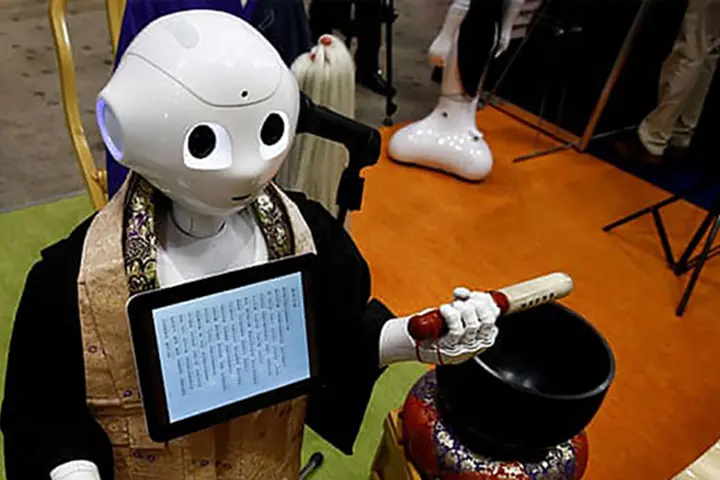
Presentation by Professor Jennifer Robertson, Professor Emeritus of the University of Michigan
“Kokoro” is widely and innovatively used in everyday language and many Japanese idioms. Kokoro refers to intellectual, emotional, and spiritual states and attributes. Kokoro is also an important lexeme in Japan’s two major religions, animistic indigenous Shintoism and Buddhism. In August 2017, SoftBank’s humanoid robot Pepper played the role of a monk at a funeral services expo, supervised by a human monk who assessed whether the robot could act “with heart.” When theorizing human-robot interaction, roboticists also include “heart” as an important quality and effect of social engagement. “Kokoro” appears at the center of the titles of several Japanese books about robots and AI. Several cognitive roboticists are working to “imagine” (imagine + engineer) the kokoro robot through innovative software algorithms and creative interpretations of AI. Pepper was conceived as a humanoid robot with a “heart.” Although technology and robots have been developed and applied for both secular and religious purposes, the appropriation of robotics and AI for religious purposes is perhaps less recognized than for secular uses. yeah. This presentation explores how religious technologies and affective human-robot relationships are imagined together theoretically and practically.
This talk is generously sponsored by the Northeast Asia Council of the Asian Studies Association, a U.S. Department of Education Title VI NRC grant, the Asian Studies Certificate Program, the Department of Global Studies, the Department of Anthropology, the Japanese Language Program, and the Honors College .

